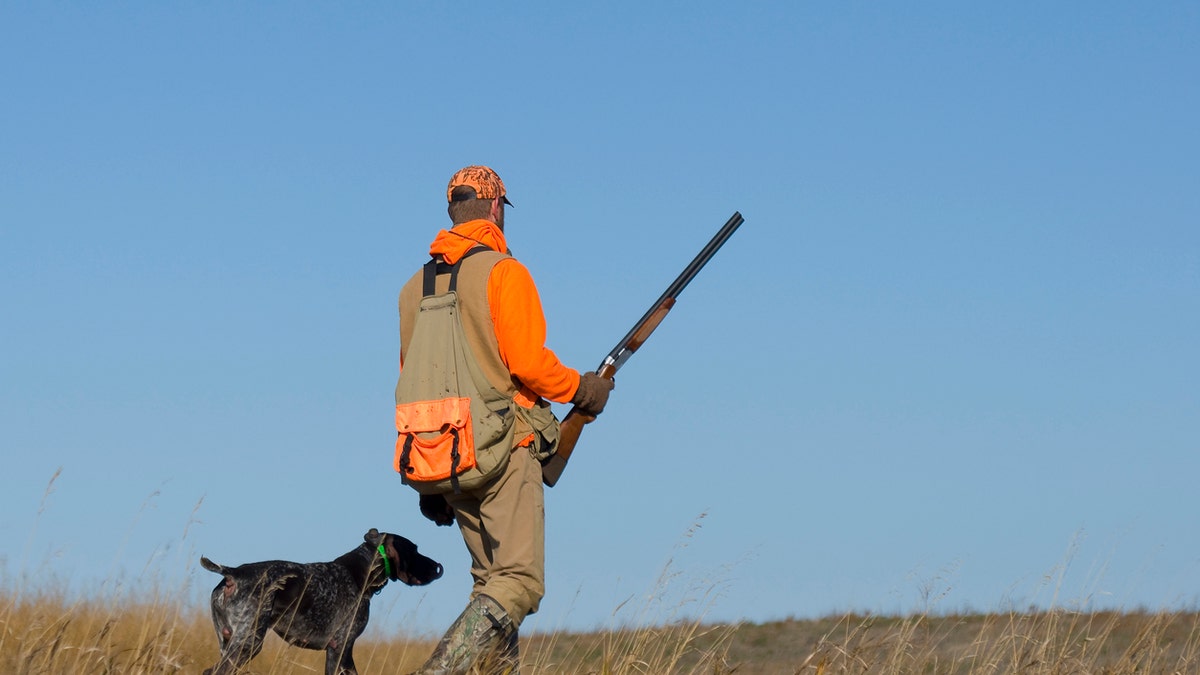
(istock)
Forests are now awash with an impressionist’s pastels across much of the Northern US. Soon the color will drip as fallen leaves to the forest floor and it’ll seem like the Robert Frost poem “October,” (O hushed October morning mild; Thy leaves have ripened to the fall…) is being whispered by the wind.
To hunters this is the call of the wild.
Bird hunters see the colored forests and dream of walking into upland cover behind their spaniels and retrievers. Deer hunters feel the cool air and smell the fallen leaves and know it is time. Waterfowl hunters see ice edging creeks and ponds and know cold air in the north will send the ducks and geese south.
Hunters don’t see this with cold calculation, but with a love of the outdoors and the game they hunt and consume.
Yes, love.
Those who don’t hunt can have trouble understanding this. The contradictions seem too obvious. How can you kill what you love?
Partly this misunderstanding is hunters’ fault. Though we’re seduced by the natural splendor and lobby for wildlife conservation and pay taxes that fund much of the conservation in the US, we’re careful how much we talk about this. Articulating Aldo Leopold’s brand of environmental ethics openly and with our hearts on our sleeves just isn’t manly. We can’t tell people, even other hunters, we love the game we hunt. They would think us effeminate, soft-headed or something. And that’s part of our weakness.
Still, I’ve seen hunters tear up when their sons or daughters tag their first pheasant or deer. I’ve seen similar emotion shown by hunters in hunting camps, at state game department meetings, at meat processors and taxidermists. I once saw the toughest guy I ever knew kneeling down, balling like a child when he found one of his hounds dead on a road.
I live along a rural-urban cultural divide in New York State and so see people misunderstanding each other on this topic whenever it comes up in mixed company.
I have neighbors who moved north from Brooklyn who are frightened of hunters. They called the police when they first moved upstate. A neighbor who lives a half-mile away likes shooting clay birds, built his own sporting clays course on his property. My neighbors thought there was a shootout going on. The cop who responded told them, “Oh, that’s just Bill. Welcome to the country.”
They were shocked when they learned I hunt. I shop at the same farm stands they do. I understand and respect their perspective. In my view, they simply have a few things to learn about what is really good for the environment in the forest around their home.
I showed them the browse line – where the deer have eaten away the understory of the forest – on the acres they own and explained how important it is for the sake of biodiversity to control the deer population.
They’ve been polite and neighborly, but we still talk past each other on environmental topics.
When I told them I have hunted all over the lower 48 and in many Canadian provinces, and that, wherever I travel, I always find that hunters love what they hunt, they looked baffled.
I told them when they see a pickup truck parked in autumn along a rural road, realize that a man or a woman (more women are now hunting than ever before) is out there trying to earn their own meat and this isn’t a bad thing. If the hunter is following game laws – as the vast majority do – then they are being used as a tool by wildlife biologists to control deer and other game populations and to pay as they go.
I’ve told them hunters pay Pittman-Robertson taxes when they buy guns and ammunition and that last year about $800 million was raised from these taxes and sent to the states for conservation programs. Another $350 million was raised in 2017 from similar taxes on fishing equipment.
The National Shooting Sports Foundation, the trade association for firearms manufacturers, estimates that, on a daily basis, about $3.5 million is contributed through taxes on guns and ammo and hunting license fees to wildlife conservation.
The meat hunters bring home is eaten. Go to any local meat processor on or after opening day of deer season to see all the hunters coming in to drop off their deer and to tell the butcher how they want the meat cut up for their table. The wild meat is also “green,” as it is free-range, hormone-free and hasn’t been genetically messed with by man.
I’ve told my neighbors that each year I toy with restricting myself to only eating meat I actually kill, as I almost do that anyway. I don’t because, like most, I enjoy variety; still, we must respect where our sustenance comes from and securing meat with your own hands and wits does engender deep respect. As I said, from these experiences comes love.
When we chat about such things I see in them an ignorance made possible by the mainstream media’s treatment of the millions of Americans who hunt. The media has mocked President Donald J. Trump’s sons for being hunters and has even treated them, and other hunters, as if they are bloodthirsty killers.
It is a tragedy that the environmental community, and thus the progressive left, won’t treat hunters as the conservationists they are. They don’t because they view hunters as a political constituency that more often votes for Republicans.
Hunting, after all, is a practical sport, real experiences in an increasingly virtual world, and reality has a way of creating conservatives.








































